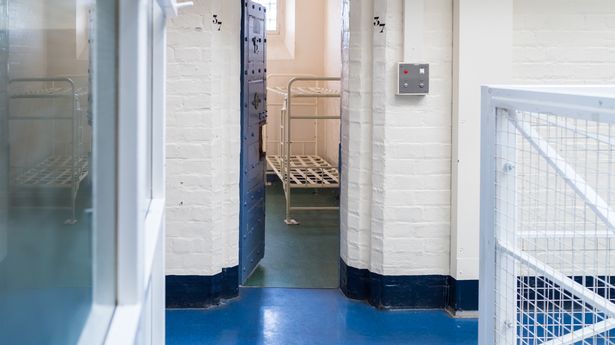Around 10,000 cells are overcrowded with multiple prisoners crammed in them, the prisons minister has said.
James Timpson admitted it’s going to take “years not months” to fix the crisis in jails in his first grilling at the Commons Justice committee on Tuesday. MPs heard that almost a quarter of the prison population are in single-person cells with more than one occupant. They were told this essentially means “someone defecates at the same place that someone eats their dinner”, while shower curtains are used for privacy in toilets.
Overcrowding also means offenders have less access to education or work programmes, while the officer to prisoner ratio is also impacted. Lord Timpson said Labour inherited a justice system “bursting at the seams” adding that the crisis “is fixable but it’s going to take a long time”.
He said releasing prisoners early from jail was “not the first thing we wanted to do when we got into government” but that they were left with no choice. Available spaces dwindled to fewer than 100 in the summer after riots ripped through the country.
Lord Timpson told the committee: “There are about 10,000 cells that are deemed overcrowded and these are single cells. They were originally built as single cells that basically have a bunk bed in them. Overcrowding has increased over the years and there are direct links when you have an overcrowded prison to increases in violence and increases in a number of other problems associated with violence, whether it’s drugs and self-harm and so on.
“It’s something I’m really aware of because our prisons need to be safe places. I want people to be able to be in prison to do their time but to do it safely and to be able to engage with all the things that are going to help them not come back.”
MPs also heard from Amy Rees, the chief executive of the Prison and Probation Service, who said emergency measures to deal with a lack of free spaces have likely brought extra capacity until Autumn next year. She said 23.6% of the prison population were in overcrowded cells, adding: “Just to be frank about what it means when we crowd a cell, it means that someone defecates at the same place that someone eats their dinner. Certainly we would like to have much less of it.”
Be the first with news from Mirror Politics
US ELECTION WHATSAPP: Join our US Election WhatsApp group here to be first to get all the biggest news and results as America heads to the polls. We also treat our community members to special offers, promotions, and adverts from us and our partners. If you don’t like our community, you can check out any time you like. If you’re curious, you can read our Privacy Notice.
POLITICS WHATSAPP: Be first to get the biggest bombshells and breaking news by joining our Politics WhatsApp group here. We also treat our community members to special offers, promotions, and adverts from us and our partners. If you don’t like our community, you can check out any time you like. If you’re curious, you can read our Privacy Notice.
NEWSLETTER: Or sign up here to the Mirror's Politics newsletter for all the best exclusives and opinions straight to your inbox.
PODCAST: And listen to our exciting new political podcast The Division Bell, hosted by Mirror interim political editor Lizzy Buchan and Express political editor Sam Lister, every Thursday.
Speaking about short-term measures to deal with cell-sharing, she said: “First of all we do try to limit crowding everywhere we possibly can and make a safe assessment about it. Second we try to do some physical things in the cell so you might have seen in Brixton we try to have shower curtains and things around the toilet because they’re designed for one person - there is no covering for that toilet.” Ms Rees said a “very careful assessment” about whether a specific prison can “tolerate crowding” is made in each case.
Lord Timpson, who has long campaigned on prison reform, said he hopes to be in the role long enough to make real change when asked about “a revolving door” of prison ministers over the last decade.
“There is an awful lot to fix. That is why I believe you need someone in this job for years not months because a lot of the decisions are complex,” he said. “We’re dealing with very complex people in a very complex system and if it was the purpose of my job to get one or two things done, I don’t think I’d do the job justice.”
